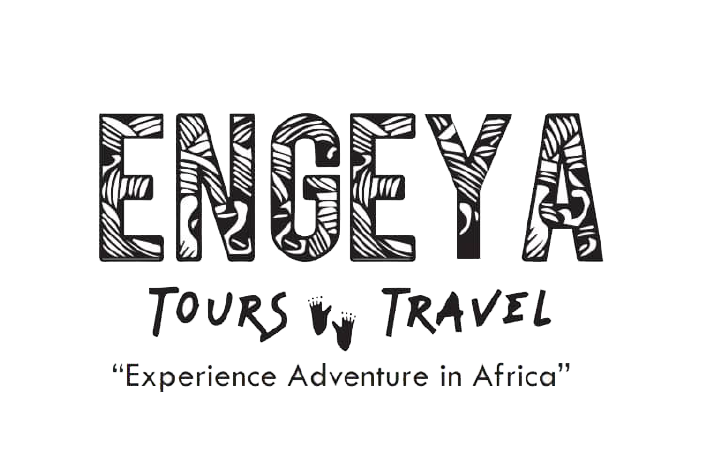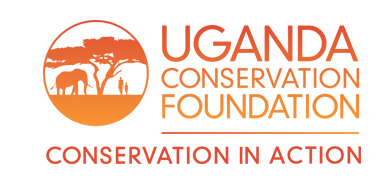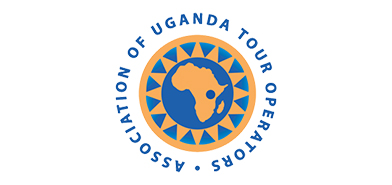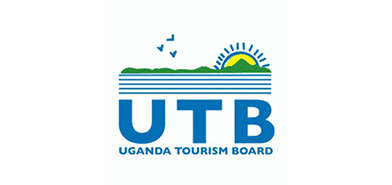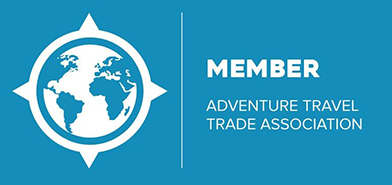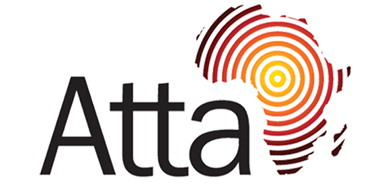Travel Information Guide: Uganda & Rwanda
A Handy Guide by Engeya Tours and Travel
Travelling to a new destination is always an exciting adventure, but being well-prepared is essential for a smooth and enjoyable experience. Whether you're setting off on a wildlife safari, cultural journey, or nature escape, having access to the right information makes all the difference.
At Engeya Tours and Travel, we are committed to ensuring that your travel experience is seamless from start to finish. This guide provides a helpful overview of what to expect when travelling to Uganda and Rwanda. Once you book your safari with us, you will receive more detailed and personalized travel information tailored to your specific itinerary.
General Travel Tips for Uganda and Rwanda
Electrical Outlets and Power Supply
Knowing what electrical plugs to bring is crucial for charging your devices while on safari.
Rwanda
Plug Types: C and J
Type C: Two round pins (widely used across Europe)
Type J: Three round pins (specific to Switzerland and a few other countries)
Voltage: 230 volts
Frequency: 50 Hz
Uganda
Plug Type: G
This plug has three rectangular pins in a triangular pattern, identical to the UK standard.
Voltage: 240 volts
Frequency: 50 Hz
Travel Tip: We strongly recommend packing a universal travel adapter that supports multiple plug types. Some high-end lodges may provide adaptors, but it's best to carry your own for convenience.
Medication and Health Essentials
Your health is a top priority while on safari. We strongly advise that you bring the following:
- Chronic or Regular Medication: Carry enough for your entire stay, along with copies of your prescriptions in case of loss or customs queries.
- Broad-Spectrum Antibiotic: Useful for treating unexpected bacterial infections.
- Anti-Diarrheal Medication: Such as Loperamide (Imodium, Diamode) for managing traveler’s tummy.
- Non-Drowsy Antihistamines: For allergic reactions to insect bites, dust, or pollen.
- Insect Repellent: Available in spray, cream, or roll-on format—crucial for preventing mosquito bites.
- Anti-Malarial Medication: Consult your doctor before travel to get the best preventative treatment based on your destination.
Having a small personal first-aid kit is also a good idea for minor cuts, bites, or blisters.
Cellphones and Connectivity
When traveling in East Africa, having a reliable communication device is essential. We highly recommend carrying an unlocked international quad-band cellphone. These are not tied to any specific network or bandwidth, making them compatible with local SIM cards in Uganda or Rwanda.
Upon arrival, you can choose one of the following options for staying connected:
International roaming bundles: If your home network offers affordable international bundles, activate one before your departure.
Local SIM cards: Widely available from mobile network providers, kiosks, or street vendors, local SIM cards offer affordable data and call rates.
Portable MiFi Devices: For guests requiring stable internet on multiple devices, we offer portable MiFi routers at an extra cost.
Both Uganda and Rwanda have reliable network coverage, including in most safari destinations.

Primate Trekking Permits in East Africa: What You Need to Know
If you're planning an unforgettable primate trekking adventure in East Africa, acquiring the necessary permits is one of the most important steps. Whether you're aiming to encounter the majestic mountain gorillas, track playful chimpanzees, or observe the elusive golden monkeys, permits are essential for gaining access to these protected primate habitats.
Gorilla Trekking Permits
Gorilla trekking is a highly sought-after experience in Uganda and Rwanda. Due to conservation efforts and the limited number of gorilla families that can be visited daily, gorilla trekking permits are restricted in number and should be booked well in advance—ideally several months ahead of your intended travel date.
- Uganda: Gorilla permits are issued by the Uganda Wildlife Authority (UWA) and currently cost $700 USD per person.
- Rwanda: The Rwanda Development Board (RDB) offers permits at a cost of $1,500 USD per person.
Each permit grants you one hour in the presence of a habituated gorilla family. This limited time is regulated to reduce human impact on the gorillas’ natural behavior and health.
Chimpanzee and Golden Monkey Tracking Permits
Similar to gorilla trekking, chimpanzee and golden monkey tracking also require permits. These can be arranged through the relevant national park authorities or through registered tour operators.
- Chimpanzee tracking permits vary depending on the destination:
- In Uganda, prices typically range from $50 to $200 USD, with Kibale Forest National Park being the most premium location.
- Other places like Budongo Forest or Kyambura Gorge may offer more budget-friendly options.
- Golden monkey tracking is primarily available in Mgahinga Gorilla National Park in Uganda and Volcanoes National Park in Rwanda. Permits are also required and can be arranged in advance.
Age Restrictions
For conservation and safety reasons, there are minimum age requirements for primate trekking:
- Gorilla trekking: Minimum age is 15 years.
- Chimpanzee tracking: Minimum age is 12 years.
Some national parks provide child-friendly activities for younger travelers under the age limit. These may include nature walks, cultural encounters, or educational programs designed to keep children engaged while their parents or guardians participate in primate treks.
Booking Tips and Recommendations
- Advance Booking: Permits often sell out, especially during the high tourist seasons (June–September and December–February). Early reservations are strongly recommended.
- Use Licensed Operators: To ensure a smooth process, consider booking through licensed tour company or directly from the national park authorities.
- Carry Identification: Be prepared to present valid identification at the park gates to verify your permit and age eligibility.

Cultural Sensitivity and Respect for Local Traditions
When visiting Uganda, Rwanda, or any East African destination, it is essential to approach local customs with sensitivity and respect. Both countries are rich in diverse cultures, traditions, and social norms.
- Ask Before Taking Photos: Always seek permission before photographing local people, especially in villages or rural areas. Some communities may consider photography intrusive or inappropriate without prior consent.
- Respect Cultural Practices: Follow any cultural guidelines shared by your tour guides. Dress modestly, especially when visiting religious or traditional sites, and observe local etiquette to avoid unintentionally offending your hosts.
- Engage Mindfully: Take the opportunity to learn about local beliefs, music, dance, and cuisine, but do so with humility and openness.
Visa Requirements for Uganda and Rwanda
Understanding the visa process ahead of time is crucial for a hassle-free entry into East Africa:
- Uganda Tourist Visa: Travelers must apply for a tourist visa online through the Uganda Immigration Portal. Note: Uganda no longer issues visas on arrival.
- Rwanda Tourist Visa: Rwanda offers the convenience of obtaining a tourist visa upon arrival at the airport or online prior to travel.
- East African Tourist Visa: If you plan to visit Uganda, Rwanda, and Kenya, consider applying for the East African Tourist Visa. This multi-country visa allows travel between all three nations on a single visa, streamlining your safari or cultural circuit experience.
Travel Insurance: A Must-Have for Every Traveller
Comprehensive travel insurance is highly recommended for all international visitors. Your insurance policy should ideally include:
- Medical Emergencies: Coverage for hospital visits, emergency evacuation, or accidents.
- Trip Cancellations: Protection in case your journey is interrupted or canceled due to unforeseen events.
- Lost or Delayed Luggage: Reimbursement for lost baggage or travel delays.
- Adventure Activity Coverage: If your itinerary includes gorilla trekking, hiking, or wildlife safaris, make sure your policy covers these activities.
Before your departure, consult your insurance provider to confirm all relevant coverage details.
Internet Connectivity in Uganda and Rwanda
Staying connected during your trip is possible in most towns and tourist areas, but connectivity may vary:
- Urban Areas & Lodges: Hotels, lodges, and guesthouses in cities and established tourism regions generally offer Wi-Fi. While the quality may fluctuate, basic browsing and communication are usually supported.
- Remote & Rural Areas: In more remote national parks or rural destinations, internet access may be limited or non-existent. Some lodges in national parks may have weak signals, especially during power outages or bad weather.
- Recommendation: If staying connected is essential, inform your tour operator in advance so they can advise you on locations with reliable access. You may also consider purchasing a local SIM card for better coverage in rural areas.
Safety and Security When Traveling to Uganda and Rwanda
When planning a trip to East Africa, safety is a top priority for many travelers. Fortunately, both Uganda and Rwanda offer stable, secure, and welcoming environments that continue to attract thousands of visitors each year. At Engeya Tours and Travel, your safety and peace of mind are our utmost priority, and we are committed to ensuring your journey is both safe and memorable.
Uganda: A Safe and Welcoming Destination
Uganda is widely regarded as one of the safest countries to visit in Africa. Known as the "Pearl of Africa," it offers not only stunning natural beauty but also warm hospitality from its people. Wherever you go, you are likely to be greeted with genuine smiles and kindness from locals, making your experience even more enriching.
Protected Tourist Areas
Most of Uganda’s popular national parks—including Bwindi Impenetrable Forest, Queen Elizabeth, Murchison Falls, and Kibale Forest—are located in the southwestern and western parts of the country. These areas are extremely safe for tourists and are well managed by the Uganda Wildlife Authority (UWA). Trained and armed rangers patrol the parks daily, ensuring the protection of both visitors and wildlife.
Stability at the Borders
While Uganda shares borders with Rwanda and the Democratic Republic of Congo (DRC), the regions adjoining these borders—especially near major tourist sites—are stable and closely monitored. All national parks and wildlife reserves remain secure and open to travelers year-round.
Tourism Police Force
Recognizing the importance of tourism to the national economy, the Ugandan government has established a dedicated Tourism Police Force. These specialized officers work alongside the Uganda Wildlife Authority to provide additional security in key tourism zones, offering tourists an added layer of safety and peace of mind.
Rwanda: Africa’s Clean and Secure Jewel
Rwanda has earned a global reputation as one of the safest and cleanest countries in Africa. Following the country's recovery from the 1994 genocide, Rwanda has experienced remarkable transformation, now boasting high levels of security, efficient public services, and an unwavering focus on law and order.
Safe for Wildlife Tourism
For travelers drawn to the unique experience of mountain gorilla trekking, Rwanda’s Volcanoes National Park is a top destination. The government has prioritized the safety of visitors, with strict park regulations, expert guides, and a strong security presence ensuring safe and unforgettable adventures in the wild.
General Safety and Urban Cleanliness
Cities like Kigali, the capital of Rwanda, are considered among the cleanest in Africa, with a visible police presence, excellent infrastructure, and low crime rates. Tourists can enjoy the country’s vibrant culture, history, and natural beauty without significant safety concerns.
Frequently Asked Questions
If you have questions about Uganda and Rwanda safaris, We have answers for you here, incase you dont find your answers, please feel free to reach out to us info@engeyatoursandtravel.com

Where is Uganda?
Uganda borders Kenya to its east, South Sudan to the north, the Democratic Republic of the Congo to the west, Rwanda to the south-west, and Tanzania to the south. The southern part of the country includes a substantial portion of Lake Victoria, shared with Kenya and Tanzania. Uganda is mostly located within the African great lakes region, lies within the Nile basin, and has a varied but generally modified equatorial climate
What are Uganda's main landmarks?
Uganda possesses lots of natural physical features like mountains, forests, valleys, and water bodies. The reason why is mainly known as a country gifted by nature.
Palpably Uganda’s national parks protect its greatest natural treasures, most notably the endangered mountain gorillas of Bwindi Impenetrable and Mgahinga Gorilla National Parks, the common chimpanzees of Kibale Forest National Park, the unique and unusual tree-climbing lions, and the striking Kazinga Channel of Queen Elizabeth National Park, the great Murchison Falls of Murchison Falls National Park, the snowcapped Rwenzori Mountains of Rwenzori Mountains National Park, the Sempaya hot springs of Semuliki National Park, the varied wildlife and amazing culture of Kidepo Valley National Park, among others.
Among the other landmarks that Uganda has include the longest river in the world (River Nile) with its source believed to be Jinja, a city in eastern Uganda. The world’s second-largest freshwater lake (Lake Victoria) is also among the special landmarks that this awesome country showcases.
Is Uganda Safe?
in general, Uganda is a safe country for solo and group travelers and has been stable for its 30 years of independence. However, travelers should always be conscious and very alert, especially with their belongings. There’s petty theft and pickpocketing in major cities, particularly in Kampala the country’s capital.
That said, travelers move from one corner of the country to another without any insecurity occurrence. It was only recently when an American tourist was kidnapped. The predicament was handled in a very majestic manner and was rescued from the kidnappers. Since then the security of tourists has been tightened more than ever.
Nonetheless, you have to be vigilant. While touring around Uganda like in many other foreign countries, it is advised to move with a local guide or travel through a local tour operator. You should also stay and travel to places known to be safe and occupied by a reasonable number of people. Having the local hotline emergency number to call in case of any issue of insecurity is also a great idea.
is Uganda Safe for solo travellers
Uganda is a secure country for solo tourists, groups, and families. That said, it’s advisable to book your holidays with a reliable Uganda tour operator who will be responsible for your stay in the country. Independent movement in Uganda is safe but intrepid travelers should limit movement alone during the daytime and get home early.
How to best travel across Uganda
The best way to travel around Uganda is to use a local tour operator who will organize the itinerary, transport, accommodation, and meals for you as well as also purchase the various entrance fees and park activities on your behalf. This is the most convenient and safest way to travel.
On the other hand, you can also choose to rent a vehicle and take a self-drive journey.
Hiring a private 4WD car is also a great way to travel around Uganda, especially if it is your first time. This will give you the freedom and flexibility to explore the country’s finest destinations – such as Bwindi Impenetrable and Kibale Forest National Parks – at your own pace.
Finally, hiring a 4WD car together with an experienced and professional driver-guide can also enhance your trip.
What time of the year is best to visit Uganda
Uganda can be visited all year round but most people prefer to visit it is during the dry months of December to February and June to August. During the aforementioned dry months, grasses in the national game parks are shorter compared to how they are during the rainy season and this offers a perfect and fantastic game viewing as well as a clear snapshot of the animals in the jungle.
However, dry months being the best time to visit Uganda should not play any part in stopping you from visiting Uganda at any time you feel like as the country is always open for tourists. Moreover, traveling in the low season (rainy months) can at times be cheaper than traveling during the peak season (dry months) as hotels in the Parks tend to reduce their rates and tour companies can provide car rentals at better prices than in the peak season.
Where is best to stay during my visit to Uganda?
Those wishing to visit Uganda’s remarkable national parks like Bwindi and co should know that all Uganda Parks have suitable accommodations that include budget, mid-range, luxury, and high-end lodges and camps – so it will depend on each traveler’s taste!
On the other hand, there’s usually camping. That way you can set a tent in any of the camping sites in the Park or go with rooftop tent camping and set a tent atop your 4WD Land Cruiser to spend the night atop your car.
What should I pack for my Uganda trip?
Basic things you should include for your safari in Uganda include a valid passport, yellow fever vaccination, light clothes, heavy clothes, comfortable hiking shoes/boots, enough undies, sun hat and sunglasses, a good camera, music player, chargers, first aid kit (or some emergency tablets like panadol and painkillers), garden gloves, hand sanitizer, enough face masks (needed during pandemic times), insect repellents, sun lotion, a notebook and pen, binoculars, and earplugs.
Do I need an e-visa to travel to Uganda?
Almost all countries will need a visa when traveling to Uganda. Check out the visa policy for Uganda here. E-visas can be purchased online through the Directorate of Citizenship and Immigration. This is the only authentic Visa Application Portal for Uganda visas and it costs $50, exclusive service fee.
Avoid other (fraudulent) portals where you’ll pay much more for your Uganda visa!
When flying to Uganda, an e-visas is mandatory. The Uganda e-visa is quick and easy, but also a little work as they require a passport-copy, recent passport-size photograph and your yellow fever vaccination certificate
© 2025 Engeya Tours & Travel - Brand by Robylinks Solutions
